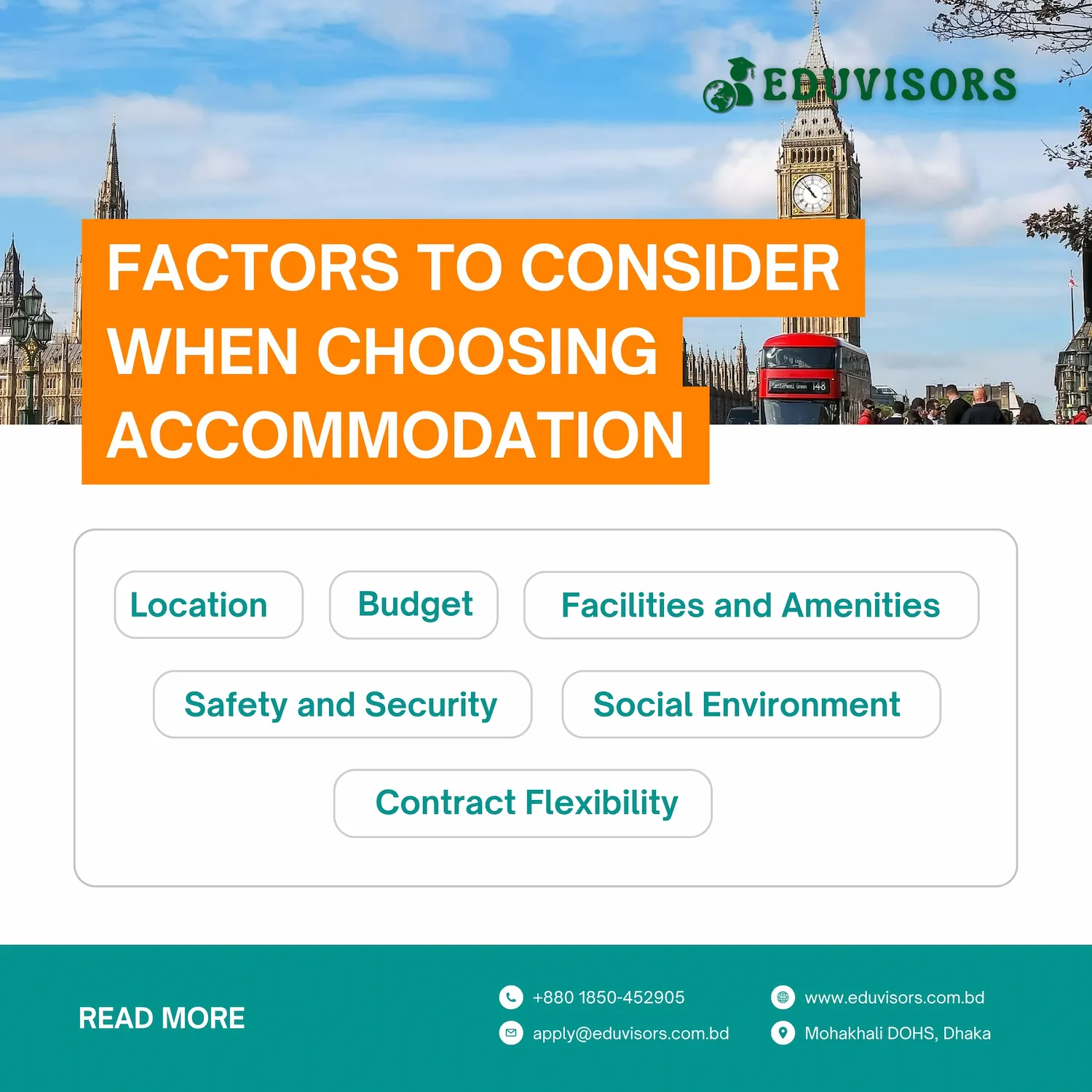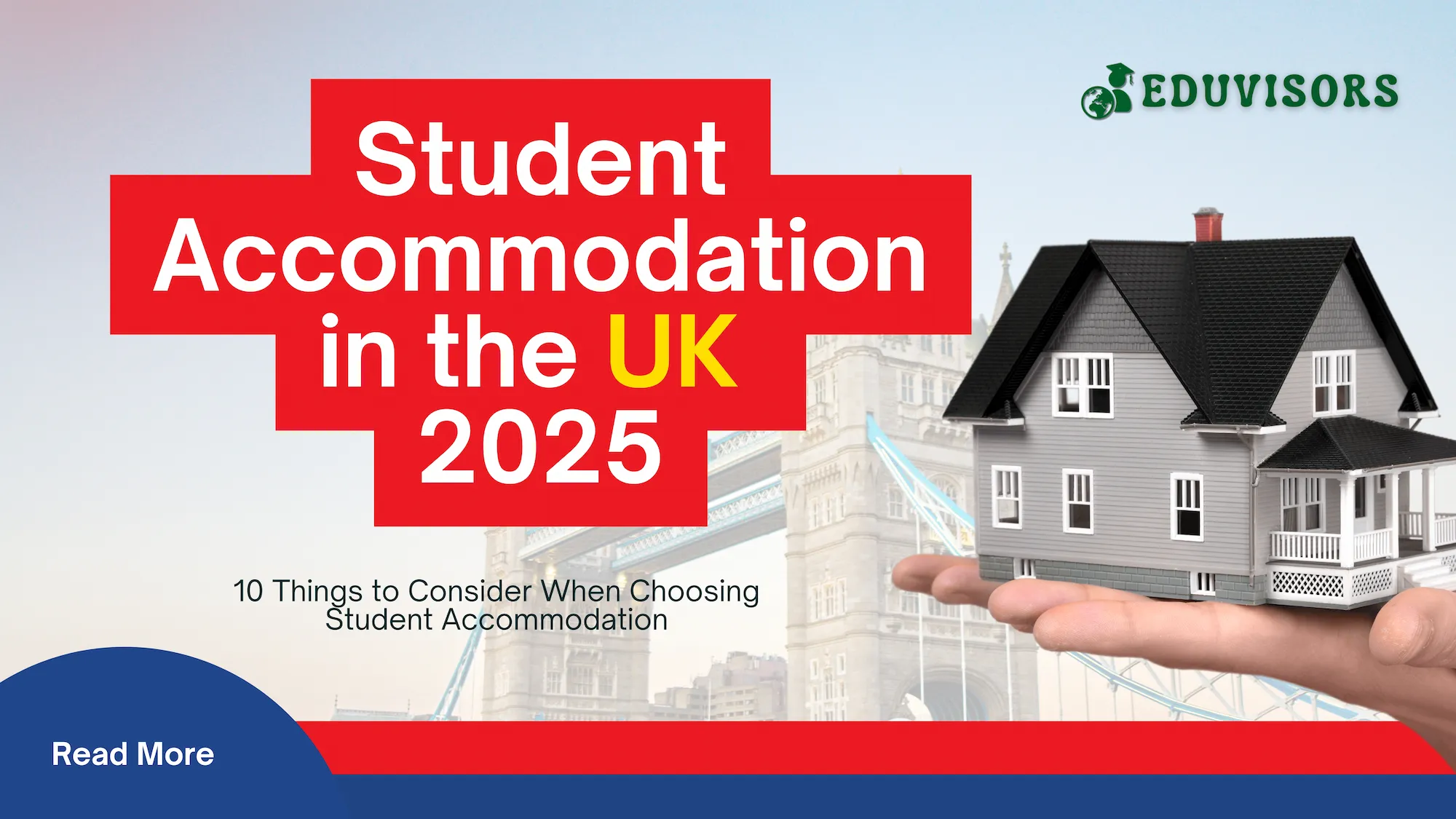For students planning to study in the UK in 2025, finding the right accommodation is more than just securing a roof over your head — it’s about creating a home away from home. With thousands of international students arriving each year, the competition for quality housing has grown, and so has the variety of options available.
Whether you’re after a social living environment or a private space to focus on your studies, making an informed choice can significantly affect your student experience, wellbeing, and even academic performance.
The landscape of student housing in the UK continues to evolve, with new technologies, sustainability initiatives, and lifestyle trends shaping what accommodation looks like today.
In this guide, we’ll break down the main types of student housing available in 2025 and what you need to know before making your decision.
Types of Student Accommodation
Choosing the right type of accommodation depends on your lifestyle, budget, university location, and personal preferences. Here’s an overview of the most common options available for students in 2025:
University Halls of Residence
University-managed halls remain one of the most popular choices for first-year students. These buildings are typically located on or near campus and offer furnished, single or shared rooms, often with communal kitchens and social areas.
In 2025, many universities are upgrading their halls with improved security systems, high-speed internet, and sustainability-focused amenities like energy-efficient appliances and recycling programs. These halls foster a strong sense of community and are great for those looking to build friendships early on.
Private Halls
Unlike university-managed residences, private halls are operated by commercial providers. They offer a more premium experience — often with en-suite rooms, on-site gyms, study lounges, and even cinema rooms.
These buildings are particularly popular in larger cities such as London, Manchester, and Birmingham, where student demand is high. While they usually come at a higher price point, private halls often provide flexible tenancy lengths and high-end facilities, appealing to students who value comfort and convenience.
Shared Houses/Flats
Once students move past their first year, many opt to rent a house or flat with friends. This option offers more independence and is generally more cost-effective than halls, especially in smaller university towns.
In 2025, the private rental market remains competitive, so students are encouraged to start their search early and understand tenancy agreements thoroughly. Sharing a house can provide a more homely environment, but it also comes with shared responsibilities like bills, cleaning, and maintenance.
Studio Apartments
Studio flats are self-contained units that include a private bedroom, bathroom, and kitchenette. These are ideal for students who prefer solitude, have a strong study routine, or value their personal space. Studios tend to be more expensive but offer privacy and control over your living environment.
With the growing popularity of hybrid learning in 2025, many students choose studios as they offer a quiet and dedicated space to attend online lectures and work on assignments without interruption.
Homestays
Homestays involve living with a local UK family, offering a culturally immersive experience. This option is particularly suitable for international students who want to improve their English language skills and adapt to British culture more naturally.
In 2025, vetted homestay programs are better regulated and more accessible through education agents or university partnerships. They’re also a safe and supportive option for younger students or those coming to the UK for the first time.
Factors to Consider When Choosing Accommodation
Selecting the right accommodation in 2025 isn’t just about picking a place that looks good — it’s about ensuring that it aligns with your academic needs, lifestyle, and budget. Here are the key factors every student should weigh before finalizing their decision:

1. Location
Proximity to your university campus should be a top priority. Living close to lectures, libraries, and student services can save both time and transportation costs. In urban areas like London or Edinburgh, even a short commute can be expensive and tiring, so choosing a location with accessible public transport links is crucial.
2. Budget
Accommodation costs vary significantly based on city, type, and facilities. In 2025, the average weekly rent for students has continued to rise, particularly in major cities. Always consider the full cost — not just rent, but also bills (if not included), transport, and groceries. Creating a clear monthly budget will help you narrow down options that are affordable in the long run.
3. Facilities and Amenities
Modern student accommodations now come with a variety of features, from high-speed Wi-Fi and smart locks to on-site laundry, fitness centers, and even community events. While these perks enhance your experience, they often come at a premium. Prioritize which amenities truly matter to your lifestyle and academic needs.
4. Safety and Security
Security is a non-negotiable factor, especially for international students unfamiliar with local areas. Look for accommodations that offer 24/7 security, CCTV surveillance, secure entry systems, and responsive management. In university or private halls, these are usually standard, but in private rentals, you’ll need to be more vigilant.
5. Social Environment
Ask yourself: do you want a quiet, private living space or a lively, social atmosphere? University halls and private residences often host community events, which are perfect for making friends. On the other hand, studio apartments or smaller shared flats offer more peace and independence. Think about your personality and study habits before making a choice.
6. Contract Flexibility
In 2025, many providers have adopted more flexible tenancy agreements due to lessons learned during the pandemic years. Look for options with cancellation clauses, short-term leases, or the ability to switch rooms if needed. Reading the contract carefully — and getting help if needed — is essential to avoid surprises.
10 Things to Consider When Choosing Student Accommodation in the UK
Choosing the right student accommodation is essential to ensuring a comfortable and productive life while studying in the UK. With so many options available, knowing what to prioritize will help you make informed decisions. Here are 10 key factors to consider:
1. Book as Early as Possible
Once you receive your offer letter, begin researching accommodations. University-managed housing, popular student halls, and budget-friendly rooms get booked quickly. Booking early also ensures you get more options at better prices.
2. Use Social Media and Online Communities
Leverage Facebook groups and university-specific forums to find room listings, flatmates, or honest reviews. Join groups like:
These communities offer firsthand experiences and updated listings.
3. Understand Accommodation Types
There are various accommodation options in the UK:
- University-managed halls: Ideal for first-year students; usually close to campus with community support.
- PBSA (Purpose-Built Student Accommodation): Modern buildings with amenities like gyms, study areas, and social spaces.
- Private rentals: Greater independence, often shared with other students or professionals.
4. Know Your Room Type
Different room types come at different prices:
- Shared rooms: Most affordable but limited privacy.
- En-suite/private rooms: A good balance between privacy and budget.
- Studios: Fully private, best for those who value independence.
5. Set a Realistic Budget
Consider:
- Monthly rent
- Utility bills
- Internet and amenities
- Deposit and upfront fees
For international students, many private accommodations require a guarantor or advance payments.
6. Choose the Right Location
Your location determines your daily convenience. Look for places near:
- Your university campus
- Supermarkets, restaurants, and medical facilities
- Public transport stops (bus, tram, train)
In cities like London, transport costs can add up. Central areas may reduce commuting time but come at a higher price.
7. Inspect the Property (Physically or Virtually)
Always view the property before committing. Use:
- Virtual tours
- Video walkthroughs
- Reviews from previous tenants
Websites like Spotahome and My Rooms offer verified listings and videos.
8. Check for Furnishing and Facilities
Look for:
- Bed, desk, and wardrobe
- Wi-Fi and utility coverage
- Kitchen appliances and laundry access
Many university halls and PBSAs provide fully furnished rooms.
9. Read and Understand the Contract
Before signing, understand:
- Contract length (typically 42–52 weeks)
- Rent payment schedule
- Cancellation and refund policies
- Deposit protection schemes (legally required for private landlords)
10. Know Who to Contact for Support
Have direct contact details for:
- Landlords or letting agents
- University accommodation services
- Maintenance or support teams
In case of disputes or emergencies, quick communication is crucial.
City-Specific Accommodation Insights
London
- Websites for finding Accommodation: SpareRoom, OpenRent, MyRooms, Spotahome
- Average Rent: £700–£1,500+ depending on location and room type
- Tip: Consider outer zones (Zone 3–5) for better affordability but factor in travel time
Birmingham
- Websites: SpareRoom – Birmingham, OpenRent, On the Market, City Room Rentals
- Popular Areas: City Centre, Digbeth, Jewellery Quarter
- Average Rent: £400–£800
- Facebook Groups: Active listings and roommate matching communities
Wolverhampton
- University Housing for Accommodation: First-come, first-served; £300 advance rent required
- PBSA Options: iQ Student Accommodation, Homes for Students
- Private Rentals: Use accredited landlords from the “Rent with Confidence” scheme
- University Support: Email: [email protected]
Gloucestershire (Cheltenham & Gloucester)
- University Halls for Accommodation: 1,900+ rooms; £150–£240/week
- Private Rentals: Shared houses from £88–£125/week; studio rates vary
- Useful Sites: Rightmove, Accommodation for Student
Derby
- Websites for Accommodation: UniHomes, Amberstudent, University Living, Casita, Accommodation for Students
- University Halls: Agard Court, Cathedral Court, Darley Bank, Flamsteed Court (postgraduates), St Christopher’s Court
- Average Rent: £115–£192/week in university halls; ~£120–£232/week in private student accommodation
- Popular Providers: Collegiate AC – Roman House, The Croft, Northgate House
- Facebook Groups: Look for “University of Derby Freshers” and local rental groups for listings and roommate searches
- Tip: University-managed accommodation includes bills; private options vary—always confirm what’s included
How Eduvisors Supports Students in Finding the Right Accommodation
We offer dedicated support to help students find safe, comfortable, and affordable accommodation in the UK. Our Student Support Officer works closely with each student to understand their preferences, shortlist verified housing options, assist with booking and paperwork, and provide guidance before and after arrival. From university halls to private flats, we ensure every student gets personalized, trustworthy advice making the transition to life in the UK smooth and stress-free.
Finding the right student accommodation in the UK is a critical part of preparing for your academic journey in 2025. With more choices than ever before — from university halls and private residences to homestays and studios — the decision requires careful consideration of your lifestyle, budget, and study preferences. Each option has its unique benefits and challenges, so taking the time to research, plan ahead, and understand your priorities will make a huge difference in your student experience.
As rental markets become more competitive and student needs evolve, early action and informed decisions are key. Don’t hesitate to seek expert advice, read contracts thoroughly, and explore multiple platforms before committing. Remember, the right accommodation not only supports your studies but also contributes to your personal wellbeing, safety, and social life while in the UK.
We’re here to guide you every step of the way — ensuring your transition to student life abroad is smooth, secure, and tailored to your needs. Your journey starts with where you live — so choose wisely, and let your new home be the foundation for success.

















